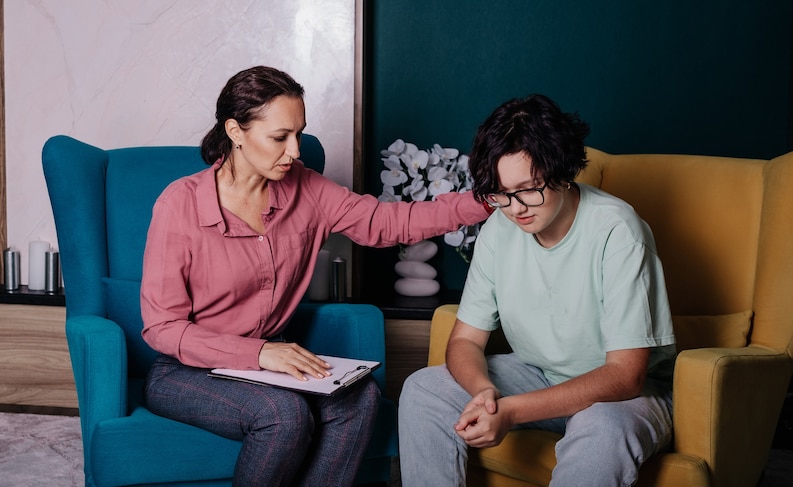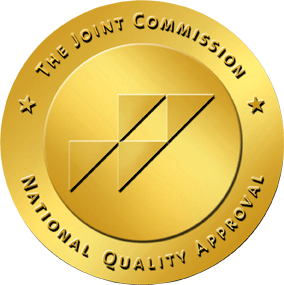Navigating adolescence and young adulthood is rarely easy. Emotional challenges like anxiety, depression, and trauma can disrupt school, relationships, and personal well-being. The standard once-a-week therapy sessions are not enough for many to create meaningful change. On the other hand, inpatient treatment may feel too restrictive or unnecessary. In these cases, an Intensive Outpatient Program, or IOP, serves as the middle ground.
This blog explains when intensive outpatient therapy is appropriate, which conditions it supports, and how it helps teens and young adults move forward confidently.
What Is Intensive Outpatient Therapy for Teens and Young Adults?
Intensive Outpatient Programs offer a structured level of behavioral health care. They include several weekly therapy sessions without requiring an overnight stay at a facility. These programs are typically three to five days per week and combine group therapy, individual therapy, psychiatric services, and family involvement.
Participants continue living at home and can still go to school or work. This balance makes IOPs an ideal solution for those who need more than traditional outpatient therapy but are stable enough to avoid inpatient hospitalization.
When Is IOP Therapy Needed for Teens and Young Adults?
IOP therapy is not the first line of care for every mental health challenge, but it becomes necessary when symptoms begin to interfere with everyday life significantly. Here are some indicators:
- Daily functioning is impaired due to emotional or behavioral struggles
- A recent crisis occurred, such as self-harm or suicidal ideation (non-acute)
- Weekly outpatient therapy is no longer effective
- Symptoms persist despite medication or other interventions
- The person is transitioning from inpatient or partial hospitalization care
For young people in these circumstances, IOP offers the structured support they need to recover and regain a sense of control over their lives.

Conditions Commonly Treated in IOP for Youth
Many teens and young adults suffer from conditions that make it difficult to cope without intensive help. IOPs are designed to treat:
- Major depressive disorder
- Generalized anxiety disorder and panic attacks
- Post-traumatic stress disorder (PTSD)
- Obsessive-compulsive disorder (OCD)
- Bipolar disorder, when symptoms are stable
- Emotional dysregulation
- Non-acute self-harm and suicidal thoughts
- Co-occurring substance use disorders
Even those who do not meet the criteria for a specific diagnosis may benefit from IOP if their emotional distress disrupts daily functioning.
Key Features of an Effective IOP for Teens and Young Adults
Not all IOPs are created equal. When evaluating programs for your teen or young adult, look for these features:
- Licensed therapists with experience working with adolescents and young adults
- Individual therapy with evidence-based approaches like CBT, DBT, and trauma-informed care
- Structured group therapy sessions with age-appropriate content
- Regular psychiatric evaluations and medication support, when needed
- Family therapy and support groups for parents and guardians
- Cultural competency and bilingual staff if needed
- Flexible schedules that accommodate school or college
- Transition planning and coordination with academic institutions
An effective IOP will combine these components into a personalized care plan that promotes emotional stability and long-term growth.
Benefits of IOP for Teens and Young Adults
One of the greatest strengths of IOP is that it meets young people where they are. Here are some of the benefits:
- Continued participation in everyday life: Teens and young adults stay connected to their families and communities while receiving care.
- Structure without confinement: Regular sessions create stability and predictability without requiring inpatient care.
- Stronger peer support: Group therapy helps participants relate to others with similar experiences.
- Improved coping and life skills: Sessions focus on communication, problem-solving, and emotional regulation.
- Family involvement: Healing is more successful when parents and caregivers are informed and involved.
- Greater consistency and accountability: Frequent contact with a treatment team ensures progress is monitored and adjustments are made as needed.
For many young people, IOP is the first time they feel truly understood and supported.
Transitioning Into or Out of IOP
Teens and young adults often enter IOP after being discharged from a more intensive setting, such as inpatient or partial hospitalization programs. In this case, IOP acts as a step-down service, providing a safe transition back into daily life.
Conversely, some start IOP after failing to progress in traditional outpatient therapy. If weekly sessions are not enough and symptoms continue to worsen, IOP becomes a step-up approach.
In either scenario, the goal of IOP is to help the individual gain the stability, skills, and support needed to return to a less intensive level of care over time.

IOP and the Role of Family Support
Family plays a critical role in the success of IOP for teens and young adults. The program is most effective when caregivers are engaged in the process. This might include:
- Participating in family therapy sessions
- Attending educational workshops
- Learning how to respond to emotional dysregulation at home
- Providing encouragement and consistency in daily routines
Young people are still developing their identity and independence, but they often rely on trusted adults for validation and structure. A supportive home environment helps reinforce the progress made in therapy sessions.
Why Choose Improving Lives Now for Teen and Young Adult IOP
Improving Lives Now in Miami offers an Intensive Outpatient Program specifically designed for adolescents and young adults. This program helps individuals stabilize their mental health while staying connected to their families, schools, or workplaces. It is built on a strong foundation of clinical excellence and compassionate care.
Key Program Features at Improving Lives Now:
- Sessions held three to five days per week, either in person or via HIPAA-compliant telehealth
- Treatment tailored for teens and young adults with emotional and behavioral concerns
- Comprehensive services including individual therapy, group therapy, and family sessions
- Medication management with licensed psychiatric providers
- Flexible scheduling to accommodate academic or work obligations
- Available in English and Spanish with culturally sensitive clinicians
- Ongoing case management and discharge planning
Their program is ideal for those who need more than weekly therapy but do not require inpatient treatment. Whether managing depression, anxiety, substance use, or emotional crises, the IOP at Improving Lives Now provides the intensive care needed for healing.
Start the Journey Toward Stability and Growth
Book a Consultation with Improving Lives Now
If your teen or young adult is struggling with emotional distress, there is no need to face it alone. The Intensive Outpatient Program at Improving Lives Now offers the compassionate, structured support your family needs. With licensed clinicians, personalized treatment, and both in-person and telehealth options, we are here to help your loved one take the next step toward healing.
7171 SW 62nd Ave. Ste 300, Miami, FL 33143
Email: in**@***************ow.com
Opening Hours: Mon – Fri, 9:00 am – 7:00 pm
Phone: (305) 280-1440
Contact us today to schedule an assessment. We are ready to walk this journey with you.
Frequently Asked Questions (FAQs)
- How do I know if my teen or young adult needs IOP?
If symptoms are interfering with school, relationships, or safety, and weekly therapy is not helping, an IOP may be appropriate. - Can teens and young adults attend IOP while in school or working?
Yes. Many programs, including Improving Lives Now, offer flexible scheduling that allows for school or part-time employment. - What is the typical duration of IOP?
Most programs last between 6 and 12 weeks, though this can vary based on individual progress and clinical recommendations. - Does IOP include medication support?
Yes. Psychiatric evaluations and ongoing medication management are part of the treatment plan if needed. - Is telehealth available for IOP services?
Improving Lives Now offers secure, HIPAA-compliant telehealth services for clients across Florida who prefer virtual care.


